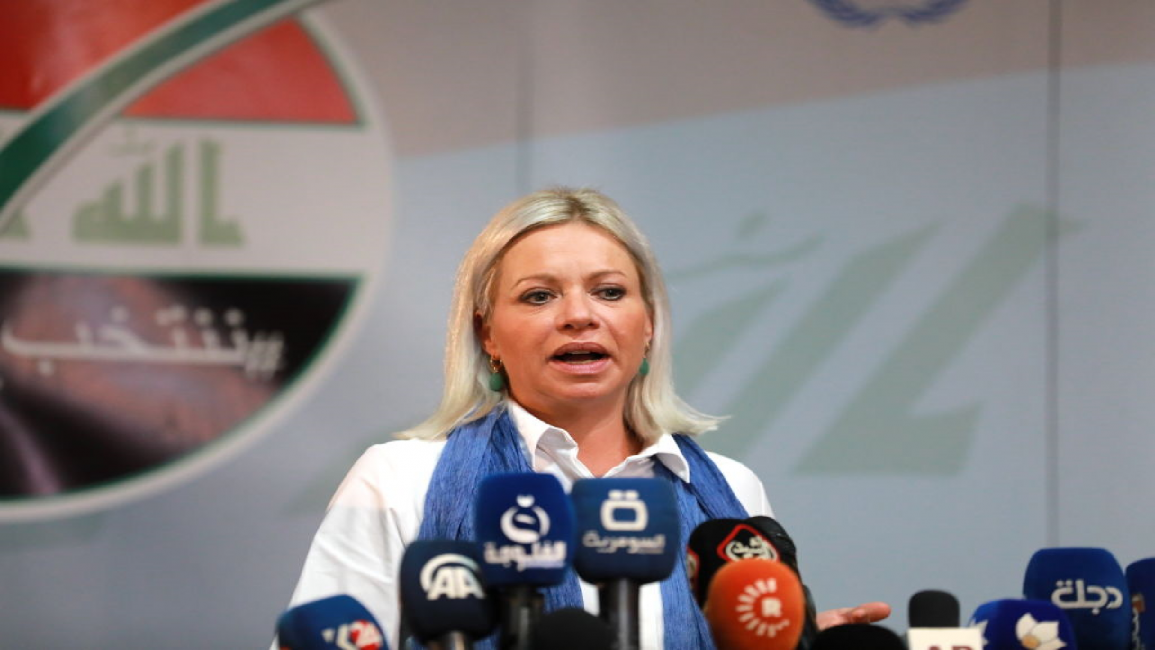UN's top Iraq envoy warns continued attacks on coalition forces threaten Iraq's hard-earned stability
During a speech at a UN Security Council meeting on Tuesday, 7 February, Jeanine Hennis-Plasschaert, the Special Representative of the United Nations Secretary-General for Iraq, emphasised the urgent need for all parties to exercise utmost restraint to prevent a regional conflict amidst the ongoing Israeli war on Gaza.
"With the conflict raging in Gaza, as well as armed action elsewhere, the Middle East is at a critical juncture. And, the same is true for Iraq," Plasschaert cautioned. "Iraq's Government's efforts are focused on avoiding a domestic (and regional) spillover. Still, continued attacks have become a harsh reality. Attacks which, if they were to continue, stand to undo Iraq's hard-won stability."
Plasschaert, who noted she would step down by the end of May, urged all sides to exercise maximum restraint. She said the current situation in the Middle East, including Iraq, "remains on a knife-edge, with the tiniest miscalculation threatening a major conflagration."
Since the start of Israel's war on Gaza, Iran-backed militias in Iraq have conducted hundreds of attacks on US forces in both Iraq and Syria over Washington's unwavering support for Tel Aviv in its brutal onslaught on the enclave.
The US struck at least 85 targets on Friday night, 2 February, in Syria and Iraq, targeting Iran-linked militant groups.
The attack came days after three American troops were killed in a drone strike on a US base in northeastern Jordan, which Washington the Islamic Resistance in Iraq- a shadow name for Iran proxies in Iraq and Syria.
She also indicated Iraq's participation in COP28 pledged to phase out gas flaring by 2028 and establish a green bank for economic diversification. Water conservation projects and clean energy investments were also promised.
However, she cautioned that Iraq faces daunting challenges, including water scarcity, desertification, forced migration, resource conflicts, and extreme weather events, heightening existing tensions.
Regarding the Iraqi Kurdistan Region situation, she expressed concern that the region's parliamentary elections have again been delayed.
The elections were initially scheduled for 22 October but were postponed to 23 November and further delayed to February this year. Now, Iraq's Electoral Commission is seeking a new date in coordination with the region's presidency.
"Let me be clear: these continued postponements do not help already low trust levels, nor do they contribute to Iraq's stability," Plasschaert stated.
She also pointed out that wrangling between Baghdad and Erbil on financial and budgetary issues goes on, stressing that the region's stability is based on funding from Baghdad so that the regional government can pay its civil servants their monthly salaries.
The Kurdistan Regional Government (KRG) has yet to pay January salaries to most of its civil servants; it also failed to pay the wages for October, November and December 2023.
Appointed by UN Secretary-General Antonio Guterres in late 2018, Plasschaert, the former Dutch defence minister, leads the UN Assistance Mission for Iraq (UNAMI). The mission focuses on promoting inclusive political dialogue and facilitating the coordination of regional humanitarian and development assistance.



